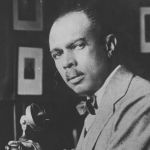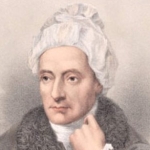December, and the closing of the year;
The momentary carolers complete
Their Christmas Eves, and quickly disappear
Into their houses on each lighted street.
Each car is put away in each garage;
Has closed his house around him like a cage,
And wedged the tree until the tree stood straight.
Tonight you lie in Whitneyville again,
Near where you lived, and near the woods or farms
Which Eli Whitney settled with the men
Who worked at mass-producing firearms.
The main street, which was nothing after all
Except a school, a stable, and two stores,
Was improvised and individual,
Picking its way alone, among the wars.
Now Whitneyville is like the other places,
Ranch houses stretching flat beyond the square,
Same stores and movie, same composite faces
Speaking the language of the public air.
Old houses of brown shingle still surround
This graveyard where you wept when you were ten
And helped to set a coffin in the ground.
You left a friend from school behind you then,
And now return, a man of fifty-two.
Talk to the boy. Tell him about the years
When Whitneyville quadrupled, and how you
And all his friends went on to make careers,
Had cars as long as hayracks, boarded planes
For Rome or paris where the pace was slow
And took the time to think how yearly gains,
Profit and volume made the business grow.
"The things I had to miss," you said last week,
"Or thought I had to, take my breath away."
You propped yourself on pillows, where your cheek
Was hollow, stubbled lightly with new gray.
This love is jail; another sets us free.
Tonight the houses and their noise distort
The thin rewards of solidarity.
The houses lean together for support.
The noises fail, and lights go upstairs.
The men and women are undressing now
To go to sleep. They put their clothes on chairs
To take them up again. I think of how,
All over Whitneyville, when midnight comes,
They lie together and are quieted,
To sleep as children sleep, who suck their thumbs,
Cramped in the narrow rumple of each bed.
They will not have unpleasant thoughts tonight.
They make their houses jails, and they will take
No risk of freedom for the appetite,
Or knowledge of it, when they are awake.
The lights go out and it is Christmas Day.
The stones are white, the grass is black and deep.
I will go back and leave you here to stay
Where the dark houses harden into sleep.




















Comment form: